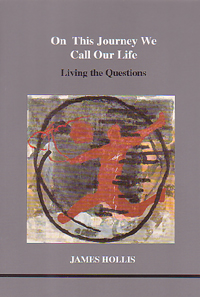One
way of looking at this journey is to observe that
psyche presents us with two large questions, one
for the first half of life and one for the second.
The question of the first half of life is essentially
this: “What is the world asking of me?”
That is, what do I have to do to respond to the
expectations of Mother and Father; and, later,
how do I meet the demands of school, work and
relationship? Our response requires the development
of ego strength and an operational sense of self.
We cannot know the Self, which is a metaphor for
the organizing, purposive energies of psyche which
have a life and a telos transcendent
to consciousness. But we are challenged to gain
some provisional, adaptive sense of identity in
the world into which fate has thrust us.
The question of the second half of life, however,
is quite different: “What, now does the
soul ask of me?” When we recall that the
word psyche, from the Greek, means “soul,”
then we realize that we have shifted from a biological
and social agenda in the first half of life, to
a psychological and spiritual agenda in the second
half.
Each
of these questions is necessary for the development
of personhood. First comes ego development and
social participation, then comes the relocation
of the ego in a larger context, a reframing by
and in response to what is transcendent to the
ego’s limited capacity. The person who has
reached midlife and still not created an ego identity,
and a stake in the social context, has much unfinished
business. But the person who clings to the values
and idols of the first half – youth, status,
continuous reassurance from others – is
locked into a regressive and self-alienating pattern
in which he or she colludes in the violation of
their soul and their summons. Thus, not only do
we have questions, but life has questions for
us.
|
